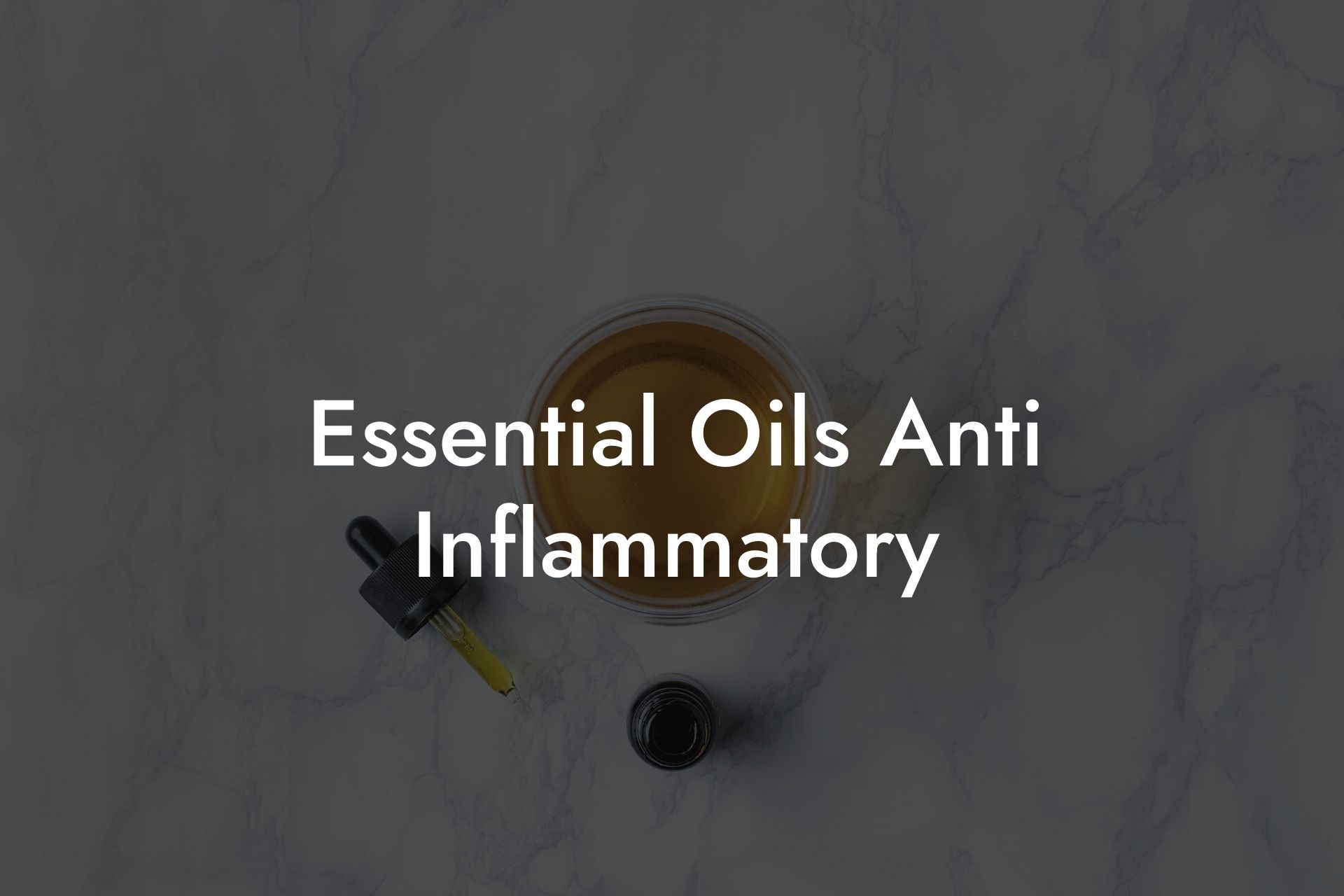Did you know that essential oils have the power to do more than just provide a pleasant aroma? Some essential oils actually contain potent anti-inflammatory properties that can be beneficial for reducing inflammation in the body. In this guide, we’ll explore some of the best essential oils that can help reduce inflammation and improve overall health. So, let’s dive into the world of anti-inflammatory essential oils and their incredible benefits.
Table of Contents
What is Inflammation?
Inflammation is the body’s natural response to infection, injury, or irritants. It is a protective mechanism that helps remove harmful stimuli and initiate the healing process. While inflammation can be beneficial in small amounts, chronic or excessive inflammation can lead to various health issues, including arthritis, heart disease, and asthma.
How Can Essential Oils Help with Inflammation?
Essential oils contain natural chemical compounds that can combat inflammation by reducing the production of inflammatory chemicals in the body. They possess antioxidant, analgesic, and anti-inflammatory properties which can help in soothing pain and discomfort caused by inflammation.
Best Essential Oils for Inflammation
Here are some of the most effective essential oils for reducing inflammation:
- Lavender Oil: Lavender is well-known for its calming and soothing properties. It contains compounds like linalool and linalyl acetate, which have been shown to have anti-inflammatory effects.
- Eucalyptus Oil: Eucalyptus oil contains eucalyptol, which has potent anti-inflammatory and analgesic properties. It can help reduce swelling, alleviate pain, and improve circulation.
- Rosemary Oil: With its powerful anti-inflammatory compounds like rosmarinic acid and camphor, rosemary oil can reduce inflammation and relieve pain. It also improves circulation and aids in the healing process.
- Ginger Oil: Ginger contains gingerol and zingibain, which possess potent anti-inflammatory and analgesic properties. This oil can help alleviate pain, swelling, and stiffness linked to inflammation.
- Frankincense Oil: Frankincense contains boswellic acids, which have been found to have potent anti-inflammatory effects. It helps block the production of inflammatory substances and supports healthy immune function.
How to Use Essential Oils for Inflammation
There are several ways to use essential oils for inflammation relief:
- Topical Application: Dilute the essential oil with a carrier oil (such as coconut, almond, or avocado oil) and apply to the affected area, massaging gently. Always conduct a patch test before applying any essential oil to larger areas, as they can cause sensitivities or irritation for some individuals.
- Aromatherapy: Use a diffuser or an aromatherapy inhaler to inhale the healing properties of the essential oils. This method can be particularly helpful for respiratory-related inflammation, such as asthma.
- Bath: Add a few drops of your chosen essential oil to a warm bath, allowing the oils to work their way into your skin while you relax and unwind.
Essential Oils Anti Inflammatory Example:
Imagine you have been experiencing joint pain and swelling due to arthritis. To help alleviate the inflammation, you could create a soothing blend by combining equal parts of lavender, eucalyptus, and ginger essential oils. Mix the oils with a carrier oil, such as sweet almond oil, and massage onto the affected areas for relief. Alternatively, you could add a few drops of this blend to a diffuser and experience the benefits through aromatherapy.
Now that you’ve learned about the incredible anti-inflammatory properties of essential oils, why not experiment with these natural remedies to reduce inflammation and promote better health? Share this article with friends and family, so they can benefit from the healing power of essential oils too. Don’t forget to explore other guides on Oshu Oils for more in-depth information on essential oils and aromacology. Finally, be sure to check out the Oshu Oils range of essential oils to find the perfect anti-inflammatory blend for you.





















